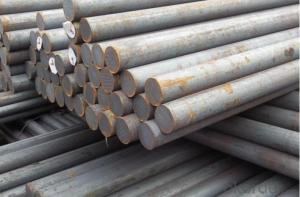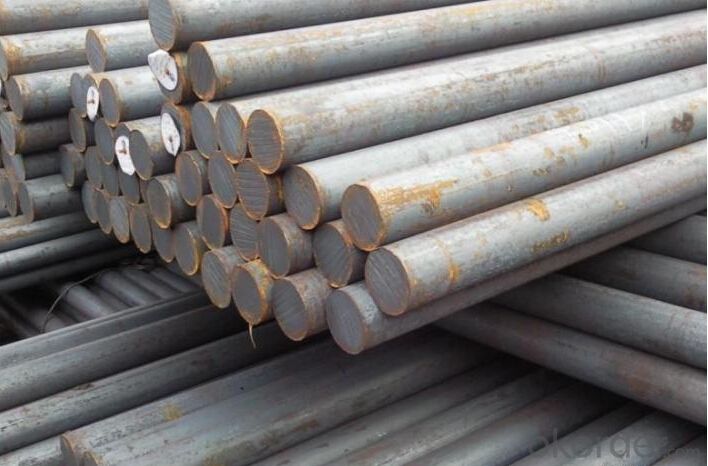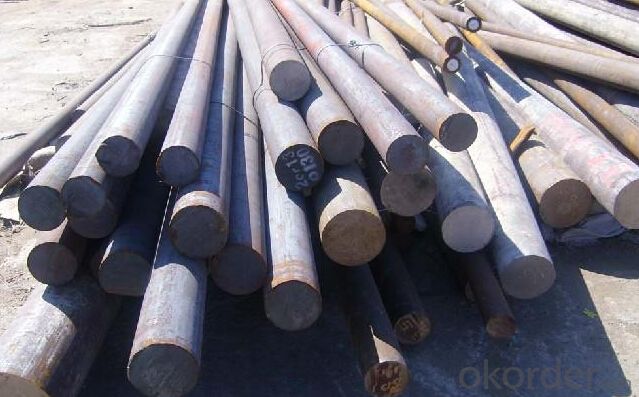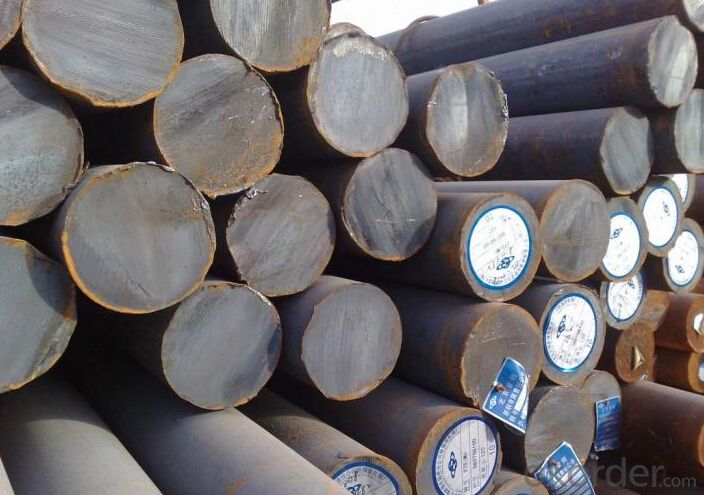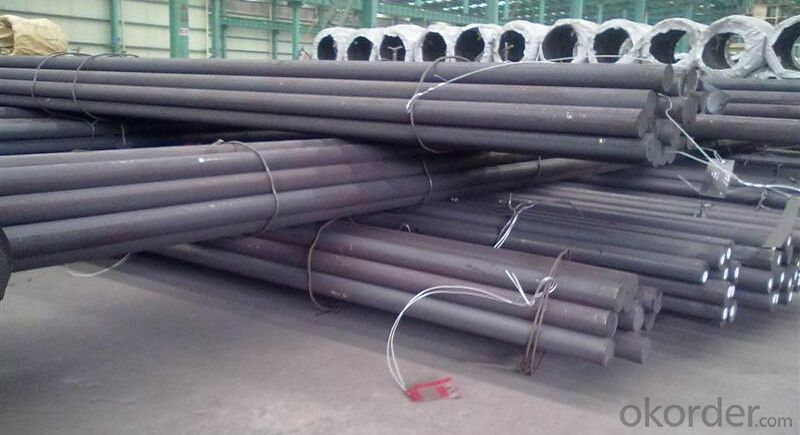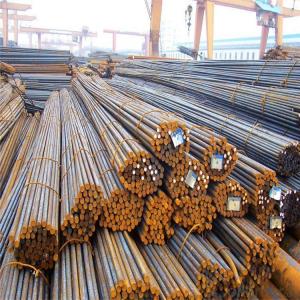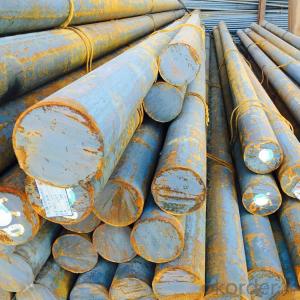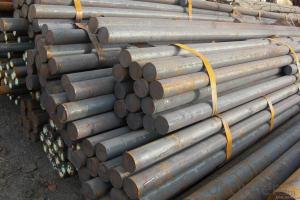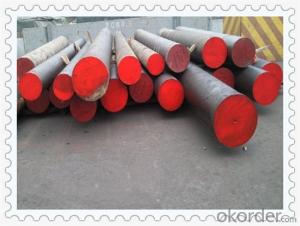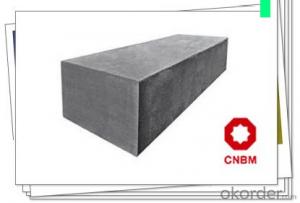Grade C35 S35C 1035 forging high quality carbon structural steel
- Loading Port:
- Shanghai
- Payment Terms:
- TT OR LC
- Min Order Qty:
- 3 m.t.
- Supply Capability:
- 100000 m.t./month
OKorder Service Pledge
OKorder Financial Service
You Might Also Like
Specification
Grade C35 S35C 1035 forging high quality carbon structural steel
Details Information of Grade C35 S35C 1035 forging high quality carbon structural steel
| Item | carbon steel bar C35,carbon steel rod,carbon steel shaft | |
| Model No. | Q235B,Q345B,A36,SS330,SS400,SAE1045,Q195,Q215,10#,15#, 25#,30#,1010,1015,1020,1025,1030 | |
| Standard | ASTM,AISI,JIS,DIN,GB,EN | |
| Size | round | Diameter:4mm-800mm |
| Length:1-12m,or as required | ||
| flat | Width:3mm-3000mm | |
| Thickness:0.3mm-200mm | ||
| Length:1m-12m,or as required | ||
| square | Diameter:2mm*2mm-800*800mm | |
| Length:1m-12m,or as required | ||
| angle | Width:10mm*10mm-400mm*400mm | |
| Length:1m-12m,or as required | ||
| hexagonal | Diameter:4mm-800mm | |
| Length:1m-12m, | ||
| Delivery time | Prompt or according to the order quantity. | |
| Trade terms | Payment terms:T/T,L/C,western union | |
| Price terms:FOB,CFR,CIF,EXW | ||
| Package | Standard export seaworthy package, or as required. | |
| Application | Steel bar applies to petroleum,chemical industry,electric power, boiler,high temperature resistant,low temperature resistant, corrosion resistant.Carbon steel bar also can be made accroding to the customer's requirement. | |
| Contact | If you have any question,please feel free to contact me. | |
Chemical Composition ofGrade C35 S35C 1035 forging high quality carbon structural steel
| C | Si | Mn | P | S | Cr | Ni | Cu |
| 0.17-0.24 | 0.17-0.37 | 0.35-0.65 | ≤0.035 | ≤0.035 | ≤0.25 | ≤0.25 | ≤0.25 |
| Tensile strength (σb/MPa) | Yield strength (σb/MPa) | Elongation (δ5/%) |
| ≥410(42) | ≥245(25) | ≥25 |
Company Introduction of Grade C35 S35C 1035 forging high quality carbon structural steel
CNBM International Corporation is the most import and export platform of CNBM group(China National Building Material Group Corporation) ,which is a state-owned enterprise, ranked in 270th of Fortune Global 500 in 2015.
With its advantages, CNBM International are mainly concentrate on Cement, Glass, Iron and Steel, Ceramics industries and devotes herself for supplying high quality series of refractories as well as technical consultancies and logistics solution.
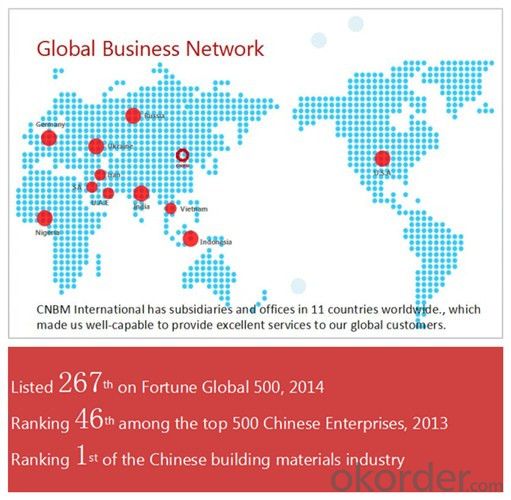
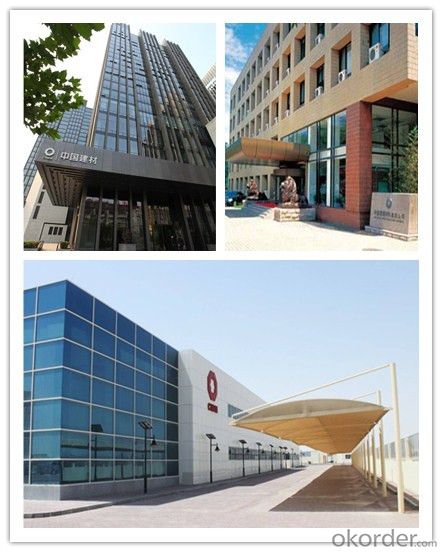
Certificates of Grade C35 S35C 1035 forging high quality carbon structural steel
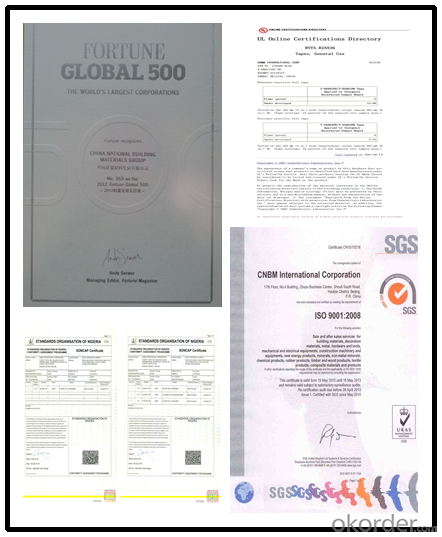
Packaging & Delivery of Grade C35 S35C 1035 forging high quality carbon structural steel
Packaging Detail | Sea worthy packing /as per customer's packing instruction |
Delivery Detail | 15 ~ 40 days after receiving the deposit |
Products show of Grade C35 S35C 1035 forging high quality carbon structural steel
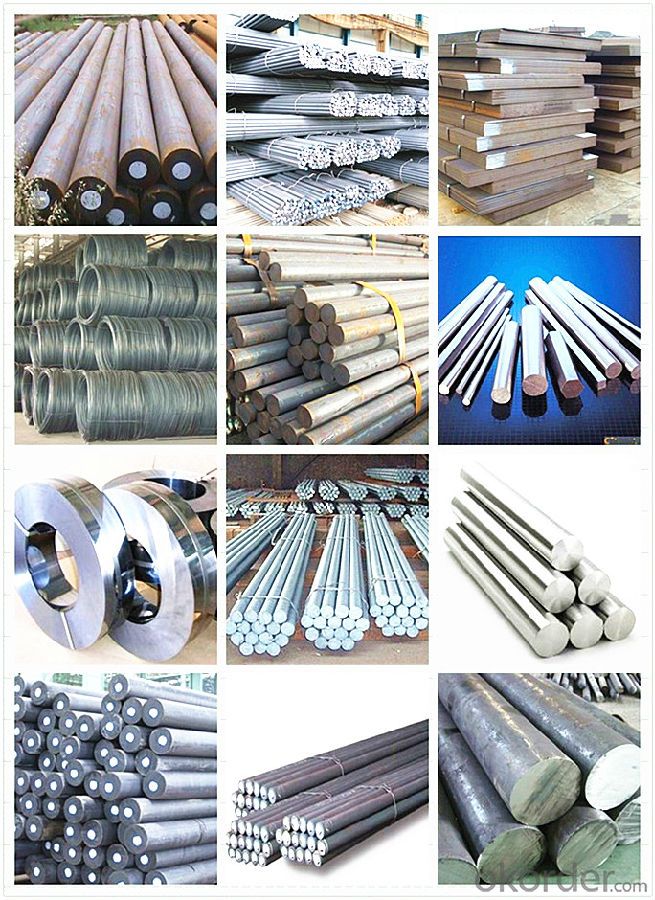
FAQ
Are you a trading company or manufacturer? | Manufacturer |
What’s the MOQ? | 3 metric ton |
What’s your delivery time? | 15-35 days after downpayment received |
Do you Accept OEM service? | Yes |
what’s your delivery terms? | FOB/CFR/CIF |
What's the Payment Terms? | 30% as deposit,70% before shipment by T/T |
Western Union acceptable for small amount. | |
L/C acceptable for large amount. | |
Scrow ,Paybal,Alipay are also ok | |
Why choose us? | Chose happens because of quality, then price, We can give you both. Additionally, we can also offer professional products inquiry, products knowledge train (for agents), smooth goods delivery, excellent customer solution proposals. |
What's your available port of Shipment? | Main Port, China |
What’s your featured services? | Our service formula: good quality+ good price+ good service=customer's trust
|
Where are your Market? | Covering more than 160 countries in the world |
- Q: What are the different alloying elements used in special steel?
- There are various alloying elements used in special steel, including chromium, nickel, molybdenum, vanadium, tungsten, manganese, and silicon, among others. These elements are added in specific quantities to enhance the steel's properties such as corrosion resistance, hardness, toughness, and heat resistance, making it suitable for specific applications in industries like aerospace, automotive, and construction.
- Q: What are the different surface treatments available for special steel?
- There are several surface treatments available for special steel, including galvanizing, powder coating, electroplating, passivation, and nitriding. These treatments enhance the steel's durability, corrosion resistance, appearance, and overall performance in various applications.
- Q: How does special steel perform in pharmaceutical applications?
- Special steel is highly valued in pharmaceutical applications due to its unique properties and characteristics. It offers excellent corrosion resistance, which is crucial in pharmaceutical environments where chemical substances and aggressive cleaning agents are commonly used. This corrosion resistance ensures that the steel remains durable and maintains its integrity over time. Additionally, special steel is known for its high strength and durability, making it suitable for applications that require heavy loads or frequent use. This strength allows the steel to withstand the rigorous demands of pharmaceutical processes, such as mixing, grinding, and sterilization, without compromising its structural integrity. Another key advantage of special steel in pharmaceutical applications is its hygienic properties. Special steel is highly resistant to bacterial growth and is easy to clean, making it ideal for environments where cleanliness and sterility are of utmost importance. The smooth surface of special steel prevents the accumulation of dirt, bacteria, and other contaminants, reducing the risk of contamination and ensuring the safety and quality of pharmaceutical products. Moreover, special steel offers excellent temperature resistance, allowing it to withstand extreme temperatures and thermal cycling typically encountered in pharmaceutical processes. This thermal stability ensures that the steel retains its mechanical properties and dimensional stability, even under fluctuating temperature conditions. Overall, special steel's corrosion resistance, high strength, hygienic properties, and temperature resistance make it a reliable and versatile material for pharmaceutical applications. Its performance in these demanding environments contributes to the production of safe and high-quality pharmaceutical products.
- Q: What are the different molding grades of special steel?
- Various industries and applications utilize several distinct molding grades of special steel. Some well-known molding grades are: 1. P20: This grade finds wide usage in the production of plastic injection molds, die casting, and extrusion dies. It boasts excellent machinability, high hardness, and good polishability, making it suitable for high-precision molding operations. 2. H13: Primarily used for die casting and forging applications, this grade is a hot work tool steel. It offers high toughness, good heat resistance, and excellent wear resistance, making it suitable for molding processes in high-temperature environments. 3. S7: Commonly employed in molding applications requiring high impact resistance, this grade is a shock-resistant tool steel. It provides good hardness, toughness, and machinability, making it ideal for applications like shear blades and hammer dies. 4. NAK80: Often utilized for high-quality mirror surface molds and precision molding, this grade is a pre-hardened mold steel. It offers high polishability, excellent dimensional stability, and good wear resistance, making it suitable for producing parts with demanding surface finish requirements. 5. 420SS: This grade, a stainless steel, is commonly used in molding applications that require corrosion resistance. It provides good hardness, moderate strength, and excellent corrosion resistance, making it suitable for applications such as medical devices and food processing equipment. These examples represent just a fraction of the available molding grades of special steel on the market. Each grade possesses distinct properties and characteristics that render them suitable for various molding applications. It is crucial to select the appropriate grade based on the specific requirements of the molding process to ensure optimal performance and durability.
- Q: What are the different forging techniques for special steel?
- There are several different forging techniques used for special steel, including open die forging, closed die forging, and ring rolling. Open die forging involves shaping the steel between flat dies or anvils, while closed die forging uses shaped dies to compress the steel into the desired shape. Ring rolling involves shaping the steel by rolling it between two or more dies, creating a seamless ring shape. Each forging technique has its own advantages and is chosen based on the specific requirements of the steel product being produced.
- Q: How does special steel contribute to the renewable energy conversion efficiency?
- Special steel plays a crucial role in improving the renewable energy conversion efficiency by offering enhanced mechanical properties, corrosion resistance, and temperature resistance. It is used in the manufacturing of various renewable energy components such as wind turbine blades, solar panels, and hydroelectric power systems. The strength and durability of special steel ensure that these components can withstand harsh environmental conditions, resulting in increased efficiency, reliability, and lifespan. Additionally, special steel's high thermal conductivity allows for efficient heat transfer in concentrated solar power plants, further optimizing energy conversion.
- Q: Can special steel be used in the production of fasteners for high-stress applications?
- Yes, special steel can be used in the production of fasteners for high-stress applications. Special steels, such as alloy steels or stainless steels, possess enhanced mechanical properties, corrosion resistance, and high tensile strength, making them suitable for demanding and high-stress environments. These types of steel are often utilized in industries such as aerospace, automotive, and construction, where fasteners must withstand heavy loads and extreme conditions.
- Q: What are the requirements for special steel used in metalworking tools?
- The requirements for special steel used in metalworking tools include high hardness, excellent wear resistance, good toughness, and high heat resistance. Additionally, the steel should have good machinability, be able to hold a sharp edge, and have the ability to withstand high temperatures and loads without deforming or breaking.
- Q: Can special steel be used in the production of surgical instruments?
- Yes, special steel, such as stainless steel or titanium alloys, can be used in the production of surgical instruments. These materials offer excellent corrosion resistance, durability, and biocompatibility, making them suitable for surgical applications that require high precision and sterility.
- Q: What are the different non-metallic inclusions in special steel?
- The different non-metallic inclusions commonly found in special steel include oxides, sulfides, nitrides, and carbides. These inclusions can have various shapes and sizes, and their presence can significantly affect the mechanical properties and performance of the steel.
Send your message to us
Grade C35 S35C 1035 forging high quality carbon structural steel
- Loading Port:
- Shanghai
- Payment Terms:
- TT OR LC
- Min Order Qty:
- 3 m.t.
- Supply Capability:
- 100000 m.t./month
OKorder Service Pledge
OKorder Financial Service
Similar products
Hot products
Hot Searches
Related keywords
